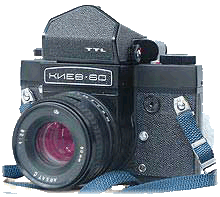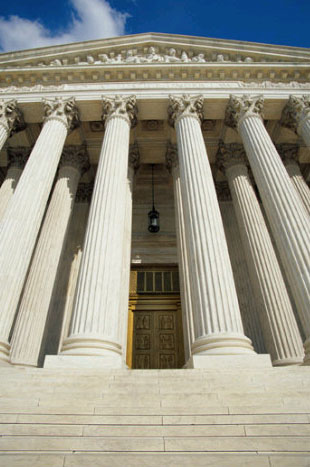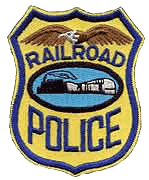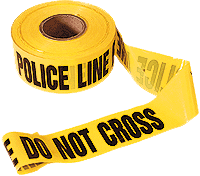 Since
the Sept. 11 terrorist attacks, photographers of railroad and transit
facilities have been experiencing problems ranging form mere suspicion
to outright declarations that such photography is “illegal.”
In a few instances, police or transit employees have attempted to confiscate
film and cameras, which they generally have no right to do.
Since
the Sept. 11 terrorist attacks, photographers of railroad and transit
facilities have been experiencing problems ranging form mere suspicion
to outright declarations that such photography is “illegal.”
In a few instances, police or transit employees have attempted to confiscate
film and cameras, which they generally have no right to do.
Do photographers have any
recourse in such situations? Yes. The general rule is that people have
the right to photograph whatever they please from areas that are open
to the public. Indeed, the U.S. Supreme Court has recognized photography
as a right of free expression protected by the First Amendment. Moreover,
those who submit photos for publication in news media enjoy the somewhat
stronger rights of freedom of the press. [Though after taking some
legal course in Mass Media Law, the Bill of Rights only protect the
actual printers and the production of the media – the ways that
you can collect that information is a different story. Though this is
very hard to fully explain in a few pages – it took our class
a full semester to explain. —TPNet]
 Banning
Photography?
Banning
Photography?
Some organizations, such as New Jersey Transit and the Massachusetts
Bay Transportation Authority, have attempted to implement unwritten
rules against photography. It is possible for a transit agency to ban
photography at it s public area. However, to be constitutional this
rule must regulate the time, place, or manner of expression (photography)
by narrowly tailored to serve a significant governmental interest, and
leave open ample alternate channels of communication. The Supreme Court
had held that a restriction on public expression must not substantially
burden more speech that is necessary to further the government’s
legitimate interest. Thus a blanket ban on photography is overkill and
would not be upheld absent a compelling demonstration that public safety
would be enhanced. The burden of providing such enhancement would be
on the transit agency.
Efforts
to ban photography failed
The New York City Transit Authority and, later, NJ Transit proposed
adopting regulations to ban photography at their respective location.
Both agencies followed the legal procedures that provide for public
comment. Both received a flood of comments, as well as legal briefs
on the constitutional issues. Wisely, both agencies withdrew their photo
ban proposals. The Nation Railway Historical Society has taken an active
role in education transit agencies as to the lack of justification for
a ban. It has been successful in obtaining written acknowledgement from
many agencies that no bans are in effect, as well as the removal of
“Photography Prohibited” signs from some facilities.
Why
the mistrust?
There is no federal law prohibiting railroad or transit
photography. Likewise, research has not  turned
up any state law on the subject in existence anywhere. Why, then, is
there so much confusion over the matter?
First, some people have always resented photographers and now use 9/11
as an excuse to justify their positions.
turned
up any state law on the subject in existence anywhere. Why, then, is
there so much confusion over the matter?
First, some people have always resented photographers and now use 9/11
as an excuse to justify their positions.
Next, many transit agencies
have developed public and employee education programs that identify
photography as a suspicious activity. Unfortunately, some of the training
materials prepared by the National Transit Institute, a private organization
affiliated with Rutgers University in New Brunswick, N.J., depict a
person photographing a train with the connotation that it is illegal
or at least suspicious. Other literature from this federally granted
organization lists people who are “taking photos of equipment”
as suspicious.
 Furthermore,
the training materials do not explain that although photography may
raise suspicion, it is legal and protected by the Constitution. Chris
Kozup from NTI said a new training program is being prepared for the
railroad industry that will include a discussion of the railfan hobby
to clarify it for those who aren’t familiar.
Furthermore,
the training materials do not explain that although photography may
raise suspicion, it is legal and protected by the Constitution. Chris
Kozup from NTI said a new training program is being prepared for the
railroad industry that will include a discussion of the railfan hobby
to clarify it for those who aren’t familiar.
What
can you do?
Unfortunately, efforts to enforce non-existing laws or rules continue.
When challenged by a transit employee or police officer, the best approach
is to politely ask to see a copy of the statute or rule. Such general
responses as, “Haven’t you ever heard of 9/11?” are
good indications that the person is acting under the misapprehension
that photography is wrong. If the person refuses to back down, take
down the name, rank, badge number, and other information, and file a
complaint with the transit agency or police department. Experience indicates
that those complaints generally have received letter of apology with
a promise that the officer or employee will be retrained. If the officer,
employee, or transit management continues to insist there is a photo
ban, you can seek advice from an attorney in the state where the incident
occurred or from the American Civil Liberties Union. The  ACLU
took and active role in opposing the New York City and NJ Transit photo
ban proposals and is threatening to sue Boston’s MBTA over its
unwritten ban.
ACLU
took and active role in opposing the New York City and NJ Transit photo
ban proposals and is threatening to sue Boston’s MBTA over its
unwritten ban.
However, railfans should
bear in mind that although it’s rare, under the proper circumstances,
there can be a lawful ban on photography. If you are not sure, it’s
best to take down the details and investigate later. Also remember that
police officers may ask what you are doing, especially when a civilian
has reported a “suspicious” act, or a potential target such
as a bridge or oil refinery is in the background. A polite explanation
about the hobby and the fact that you are in a public area should end
the matter.
Finally, in most situations
there is no legal basis for confiscating a camera or film. Anyone doing
that could be liable to the photographer for damages pursuant to state
law. In most cases where this has happened, the agency has returned
the stolen items with an apology or the return has been ordered by a
court. Railfans have the legal and constitutional right to photograph
whatever they please from locations pen to the public. So, get out there
and take your pictures!